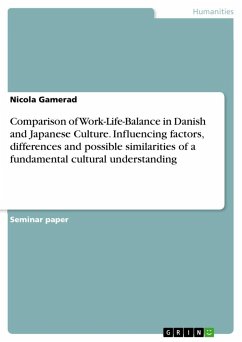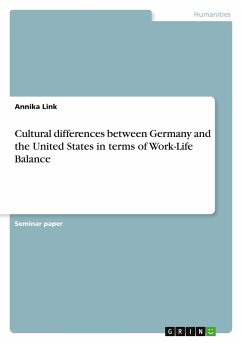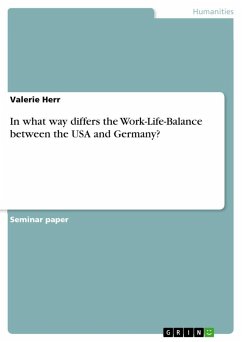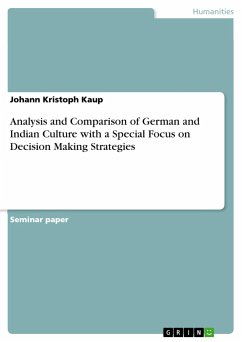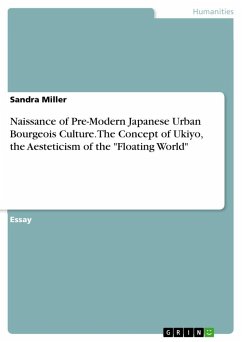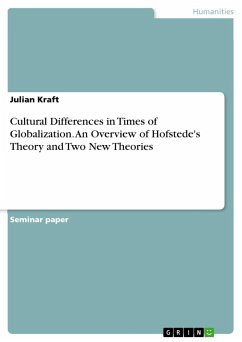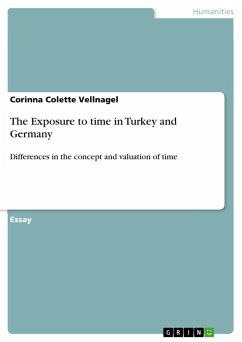Seminar paper from the year 2017 in the subject Cultural Studies - Basics and Definitions, grade: 1,7, University of Applied Sciences Essen, course: Intercultural Competencies, language: English, abstract: Due to technologisation and globalisation, the demographic development and an ever-faster growing global competition, there have been a lot changes of values within working cultures worldwide. Especially modern working world demands on employees are placed in a different light. Long working hours, additional overtime and the need of permanent availability are taking an ever-increasing amount of many employee's time. The own time management is becoming a balancing act between professional and private life and for employees it is a major challenge to find the right balance.Based on this, the countries Denmark and Japan are analysed and compared afterwards due to some selected factors of the cultural model of Geert Hofstede in this term paper having special focus on the country-specific Work-Life-Balance and its influencing factors to point out differences and possible similarities of a fundamental cultural understanding. Therefore, chapter two provides a definition of the term Work-Life-Balance (short: WLB) and a theoretical introduction of two dimensions of the cultural theory of Geert Hofstede. Following, the countries Denmark and Japan are analysed individually at first and compared with each other afterwards in chapter four. Finally, the concept of WLB is applied to the cultural comparison to provide possible recommendations for improvements regarding the differences in cultural understandings. Finally, the term paper is rounded off with a conclusion and outlook.
Hinweis: Dieser Artikel kann nur an eine deutsche Lieferadresse ausgeliefert werden.
Hinweis: Dieser Artikel kann nur an eine deutsche Lieferadresse ausgeliefert werden.

